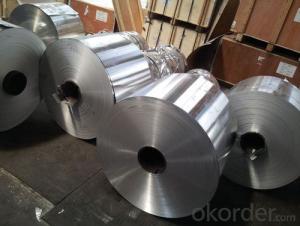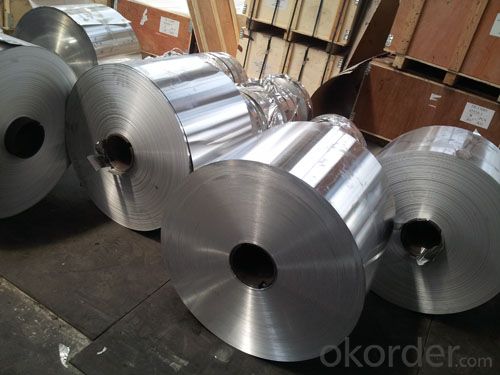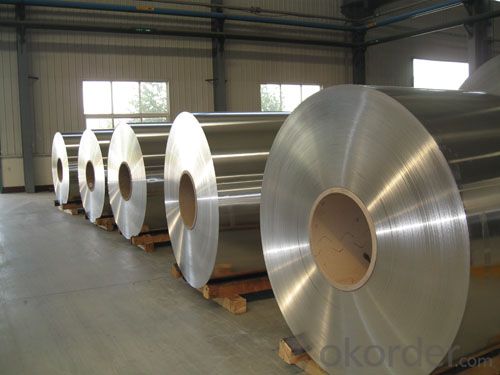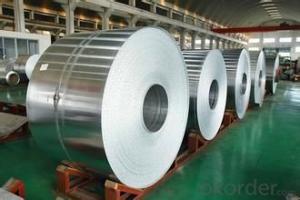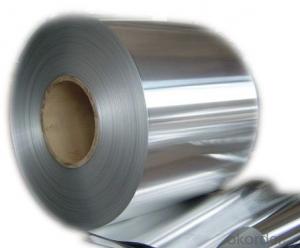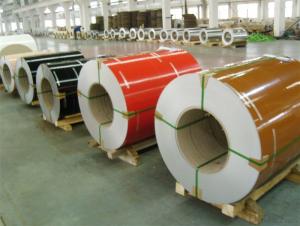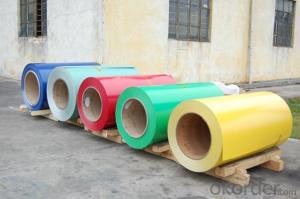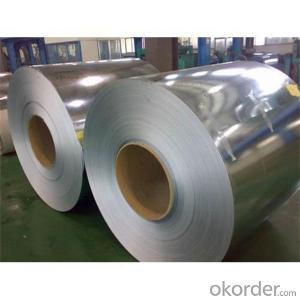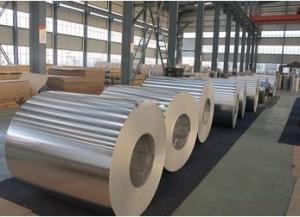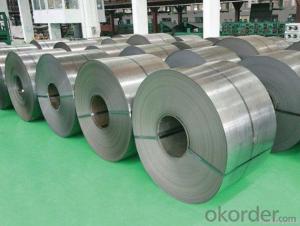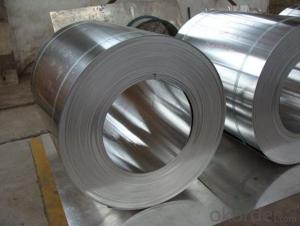1050 Aluminum Coil for Sale - Coated Aluminum Coil/Roll for Aluminium Furniture
- Loading Port:
- Shanghai
- Payment Terms:
- TT OR LC
- Min Order Qty:
- 2 m.t.
- Supply Capability:
- 50000 m.t./month
OKorder Service Pledge
OKorder Financial Service
You Might Also Like
Specification
Coated Aluminium Coil/Roll For Aluminium Fuiniture
Description
Alloy | 1060, 1100, 3003, 8011, etc. |
Temper | H16, H18, H24, H26, H28 |
Thickness | From 0.05mm to 3.0mm |
Width | Standard width:1240mm |
Special width:1300mm, 1520mm, 1570mm, 1595mm | |
Diameter | Standard dia:1200mm |
Interior dia:150mm,405mm,505mm | |
Weight | 2.5 T/coil,3.0 T/coil |
Coating | PE, PVDF, ACRYLIC |
Surface | Embossed, mill finish, coated |
Color | AS to code RAL |
Gloss | 10-90%(EN ISO-2813:1994) |
Coating Thickness | PE: more than 18 micron |
PVDF: more than 25 micron | |
Coating Hardness(pencil resistance) | More than 2h |
Coating adhesion | 5J (EN ISO-2409:1994) |
Impact Resistance | No peeling or cracking(50 kg/cm,ASTMD-2794:1993) |
Flexibility(T-bend) | 2T |
MEK resistance | More than 100 |
Advantage | 1.High temperature resistant 2.Weathering resistant 3.Scrubbing resistant 5.Acid or alkali proof 6. Fireproof 7.Light weight material is easy to construct and install |
Out package | Wooden splint with export standard |
Application | ACP, wall cladding, facades, roofs and canopies, ceilings, signboards, blind window, display platforms, electrical panels, etc |
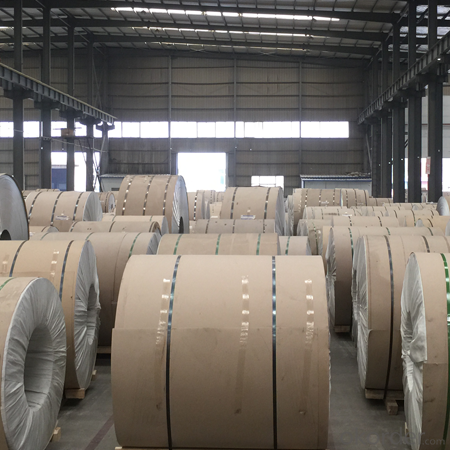
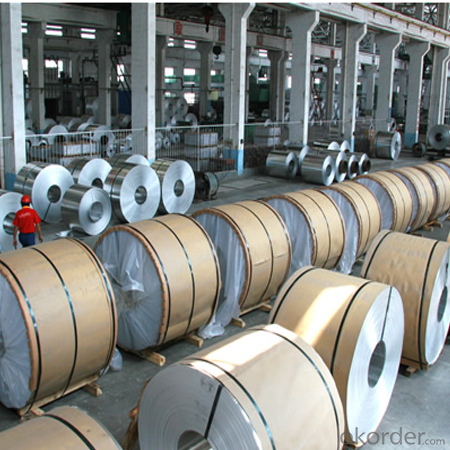
Manufacturing
Decoiler → Accumulator →Tension Leveler →Acid & Alkali Cleaner → Rinse →Conversion Treatment → Priming coater →Infrared Curing Oven →Main coater →Floatation Curing Oven →Strippable Film Applicator → Exit Accumulator → Recoiler
FAQ
--Q: Do you provide free samples?
--A: Yes, free samples will be sent to you on freight at destination.
--Q: Can I get your latest products catalogue?
--A: Yes, it will be sent to you in no time.
--Q: What is the MOQ?
--A: 2 tons
--Q: What are your payment terms?
--A: We accept L/C, T/T.
--Q: What kinds of alloy can you supply?
--A: 1000 series: 1050, 1060, 1070, 1100, 1145, 1200
3000 series: 3003, 3004, 3105, 3104
5000 series: 5052, 5083, 5754, 5182
6000 series: 6061, 6063, 6062, 6063
8000 series: 8011, 8021
--Q: What kinds of temper can you supply?
--A: O-H112: O,H12,H14,H16,H18,H22,H24,H26,H,32,H34,H111,H112
T3, T4, T6
- Q: Are aluminum coils suitable for coil slitting applications?
- Yes, aluminum coils are suitable for coil slitting applications. Aluminum is a versatile and lightweight material that can be easily processed and slit into various widths, making it ideal for industries like automotive, construction, and packaging. Its high strength-to-weight ratio and corrosion resistance make aluminum coils a reliable choice for coil slitting applications.
- Q: This question asks for a comparison between aluminum coil and iron coil, highlighting their distinct properties and uses.
- <p>Aluminum coil and iron coil differ in several aspects. Aluminum coil is lightweight, corrosion-resistant, and has excellent electrical and thermal conductivity, making it ideal for electrical wiring, heat sinks, and food packaging. Iron coil, on the other hand, is heavier, stronger, and more durable, commonly used in construction, automotive, and heavy machinery due to its high tensile strength. Iron also has magnetic properties, useful in applications like transformers and electromagnets. While aluminum is non-magnetic, it is more cost-effective and has better recyclability compared to iron.</p>
- Q: i need ONE advantage of each, and a final reason why aluminium is used?
- Copper and Aluminum are both great conductors of electricity. Aluminum is actually more dangerous than copper, as it expands/contracts a lot more with heat, and is a primary cause of house fires. Copper's advantage is that it is more reliable, it doesn't corrode as easily, and does not expand/contract much with application of heat. I believe that aluminum has an edge as a conductor, though, and is less expensive to manufacture.
- Q: Can aluminum coils be used in aerospace applications?
- Yes, aluminum coils can be used in aerospace applications. Aluminum is a widely used material in the aerospace industry due to its lightweight and high strength-to-weight ratio. Aluminum coils are often used in the construction of aircraft structures, such as fuselages, wings, and landing gear, as well as in heat transfer and cooling systems. Their excellent corrosion resistance and high thermal conductivity make them suitable for various aerospace applications. Additionally, aluminum coils can be easily formed and fabricated, allowing for complex shapes and designs required in aerospace components.
- Q: What are the different width tolerances for aluminum coils?
- The width tolerances for aluminum coils can vary depending on the specific requirements and industry standards. Generally, the tolerances range from +/- 0.005 inches to +/- 0.25 inches. However, specific applications may have more stringent requirements or looser tolerances depending on the intended use of the aluminum coils. It is important to consult the relevant specifications and guidelines provided by the manufacturer or industry standards to determine the exact width tolerances for a particular application.
- Q: Will aluminum foil go off in a metal detector
- aluminum is undectable if you wrap your eay pass in it it wont register. i tried it. and a feriday cage wraped in tinfoil will block all signals to everything
- Q: Can aluminum coils be used in the production of aluminum composite panels?
- Indeed, the utilization of aluminum coils is viable for the manufacturing process of aluminum composite panels. Frequently, aluminum coils serve as the foundational material in the production of ACPs. These panels are fabricated by adhering a slender aluminum coil to a thermoplastic core with the aid of a bonding adhesive. The presence of the aluminum coil ensures the panel's robustness and steadiness, while the thermoplastic core provides insulation and rigidity. The incorporation of aluminum coils permits flexibility in the panel's design and customization. Moreover, aluminum coils possess qualities such as durability, lightweightness, and resistance to corrosion, rendering them an optimal choice for ACP production.
- Q: Are aluminum coils suitable for architectural louvers?
- Indeed, architectural louvers can be constructed using aluminum coils as they possess remarkable corrosion resistance, a lightweight composition, and a commendable strength-to-weight ratio. The malleability and manipulability of aluminum coils grant them the ability to be effortlessly shaped and fabricated into diverse forms and dimensions, thereby rendering them exceptionally suitable for fashioning aesthetically appealing and practical louvers. Moreover, the robustness of aluminum guarantees that the louvers will endure severe weather conditions and retain their structural integrity for an extended period. In conclusion, aluminum coils serve as a dependable and adaptable material choice for architectural louvers.
- Q: A cube of solid aluminum has a volume of 1.00 m3 at 20°C. What temperature change is required to produce a 130 cm3 increase in the volume of the cube?
- The linear expansivity of aluminum is 23 x10^-6 /K. Bulk expansivity is 3 x 23 x10^-6 / k For 130 [cm^3] the temperature required is 130 [cm] ^3/ 3 x 23 x10^-6 = 0.00013/[3 x 23 x10^-6] = 1.88 K ========================= If each side of the cube of side 1m expands by e, then its new volume = [1+e]^3 = 1 + 3e + 3e^2 +e^3. Neglecting high powers of e as negligible, the increase in volume is 3e. But e = 23 x10^-6 x rise in temperature 3e = 3*23 x10^-6 x rise in temperature. Given 3e = 0.00013 0.00013= 3*23 x10^-6 x rise in temperature Rise in temperature = 0.00013 / 3*23 x10^-6 = 1.88 K
- Q: This question asks for the distinctions between aluminum coil and steel coil, focusing on their properties and uses.
- <p>Aluminum coil and steel coil differ in several aspects. Aluminum coil is lightweight, corrosion-resistant, and has good thermal conductivity, making it ideal for applications requiring flexibility and resistance to weathering. It's commonly used in construction, packaging, and electrical applications. Steel coil, on the other hand, is stronger and more durable, suitable for heavy-duty applications. It's often used in automotive, construction, and manufacturing due to its high strength and ability to withstand heavy loads. Steel is also magnetic, which is a property not shared by aluminum. The choice between aluminum and steel coil depends on the specific requirements of the project, such as weight, strength, and environmental resistance.</p>
Send your message to us
1050 Aluminum Coil for Sale - Coated Aluminum Coil/Roll for Aluminium Furniture
- Loading Port:
- Shanghai
- Payment Terms:
- TT OR LC
- Min Order Qty:
- 2 m.t.
- Supply Capability:
- 50000 m.t./month
OKorder Service Pledge
OKorder Financial Service
Similar products
Hot products
Hot Searches
Related keywords
